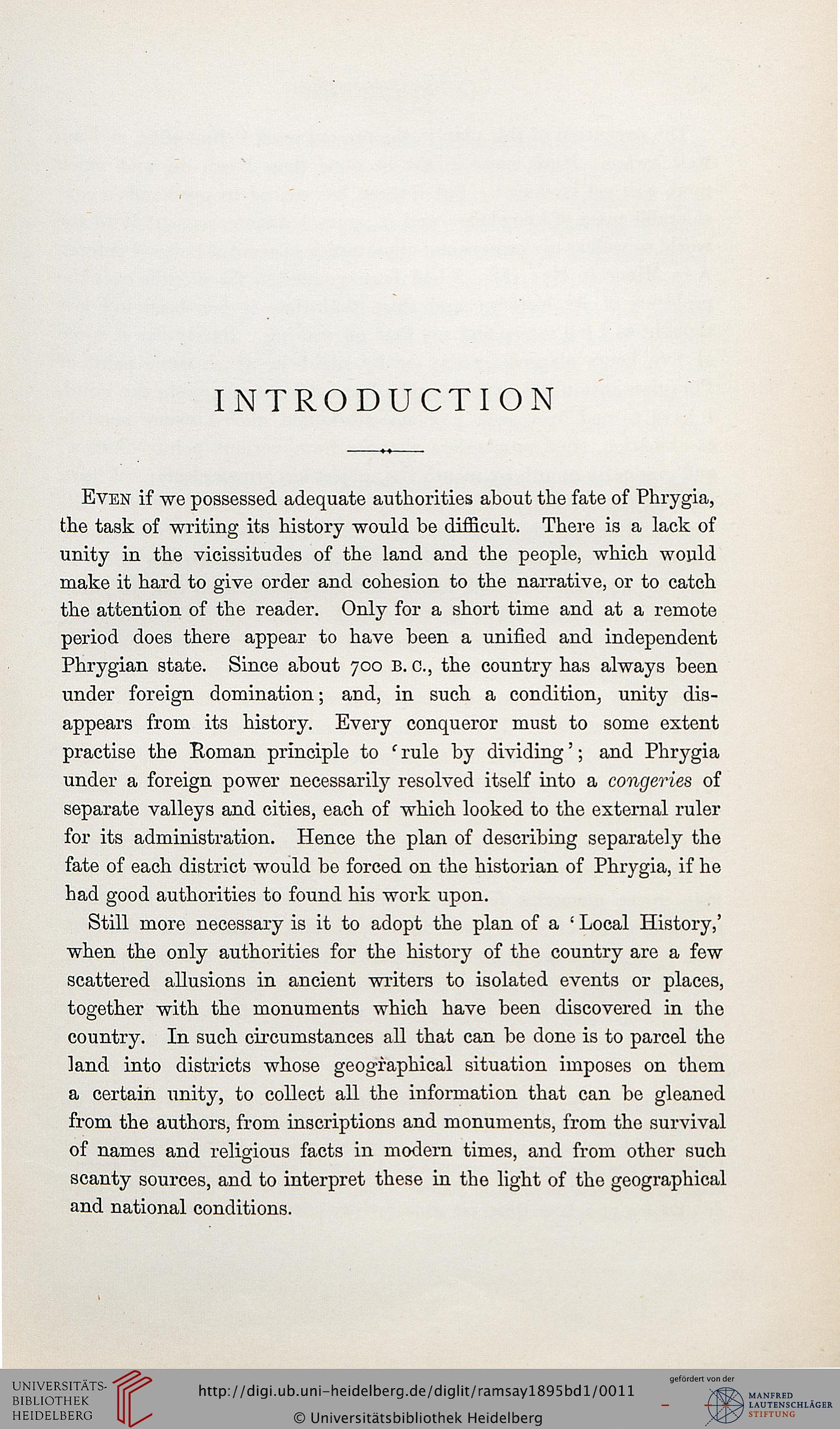INTRODUCTION
Even if we possessed adequate authorities about the fate of Phrygia,
the task of writing its history would be difficult. There is a lack of
unity in the vicissitudes of the land and the people, which would
make it hard to give order and cohesion to the narrative, or to catch
the attention of the reader. Only for a short time and at a remote
period does there appear to have been a unified and independent
Phrygian state. Since about 700 b. c, the country has always been
under foreign domination; and, in such a condition, unity dis-
appears from its history. Every conqueror must to some extent
practise the Roman principle to ' rule by dividing'; and Phrygia
under a foreign power necessarily resolved itself into a congeries of
separate valleys and cities, each of which looked to the external ruler
for its administration. Hence the plan of describing separately the
fate of each district would be forced on the historian of Phrygia, if he
had good authorities to found his work upon.
Still more necessary is it to adopt the plan of a ' Local History,'
when the only authorities for the history of the country are a few
scattered allusions in ancient writers to isolated events or places,
together with the monuments which have been discovered in the
country. In such circumstances all that can be clone is to parcel the
land into districts whose geographical situation imposes on them
a certain unity, to collect all the information that can be gleaned
from the authors, from inscriptions and monuments, from the survival
of names and religious facts in modern times, and from other such
scanty sources, and to interpret these in the light of the geographical
and national conditions.
Even if we possessed adequate authorities about the fate of Phrygia,
the task of writing its history would be difficult. There is a lack of
unity in the vicissitudes of the land and the people, which would
make it hard to give order and cohesion to the narrative, or to catch
the attention of the reader. Only for a short time and at a remote
period does there appear to have been a unified and independent
Phrygian state. Since about 700 b. c, the country has always been
under foreign domination; and, in such a condition, unity dis-
appears from its history. Every conqueror must to some extent
practise the Roman principle to ' rule by dividing'; and Phrygia
under a foreign power necessarily resolved itself into a congeries of
separate valleys and cities, each of which looked to the external ruler
for its administration. Hence the plan of describing separately the
fate of each district would be forced on the historian of Phrygia, if he
had good authorities to found his work upon.
Still more necessary is it to adopt the plan of a ' Local History,'
when the only authorities for the history of the country are a few
scattered allusions in ancient writers to isolated events or places,
together with the monuments which have been discovered in the
country. In such circumstances all that can be clone is to parcel the
land into districts whose geographical situation imposes on them
a certain unity, to collect all the information that can be gleaned
from the authors, from inscriptions and monuments, from the survival
of names and religious facts in modern times, and from other such
scanty sources, and to interpret these in the light of the geographical
and national conditions.





